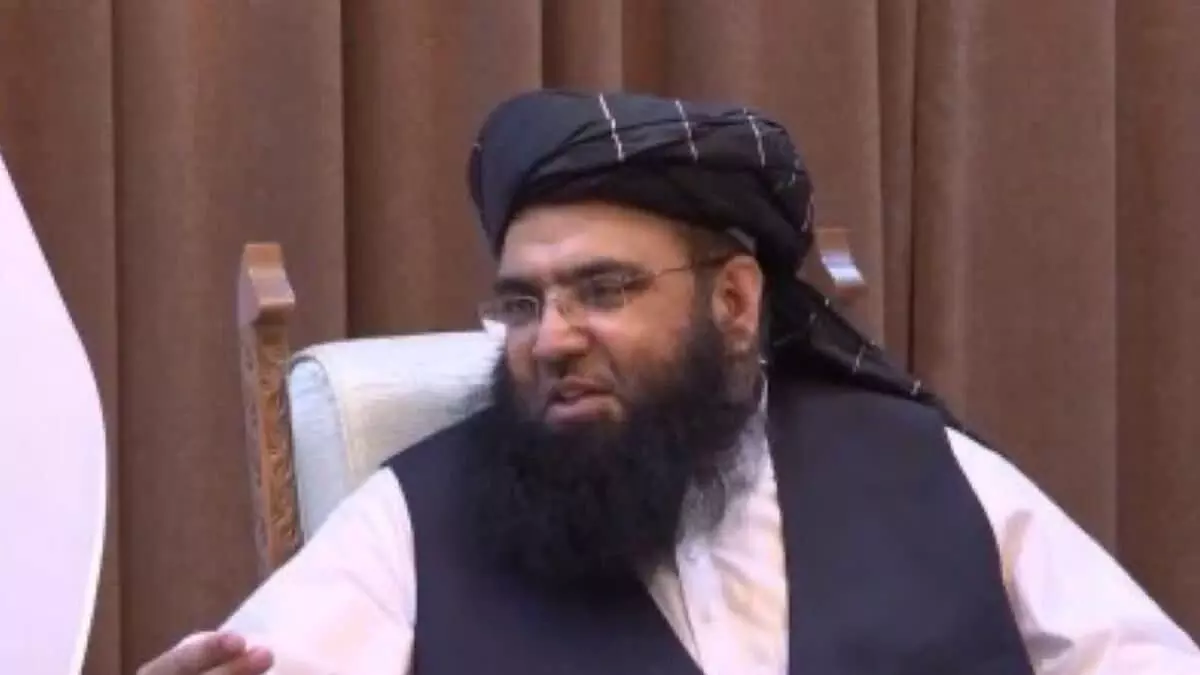Sign of amelioration?
Promotion of Abdul Kabir as caretaker PM may be an attempt to placate the faction alleging monopoly of power. It it is unlikely to improve the humanitarian situation in Afghanistan

The Taliban in Afghanistan has appointed a top-ranking official, Abdul Kabir, as caretaker Prime Minister, replacing 78-year-old Mohammad Hasan Akhund on grounds of “ill health”. Kabir was one of Akhund’s three deputies. The announcement was made on May 17 by Taliban spokesman Zabiullah Mujahid. He also said the appointment was a routine matter and “no one needs to worry about it, nor should they use it for propaganda.” The last part of his statement was intended to scotch speculation about internal rifts in the extremist outfit that took over power in Afghanistan on August 15, 2021.
Kabir, who was earlier the Deputy Prime Minister for political affairs, now heads the all-male Taliban cabinet. His name also figures prominently in the terror black list of the United Nations, along with several other senior members of the hardline regime. The spokesperson said Akhund, who was the Prime Minister since the Taliban took over, was undergoing treatment in Kandahar and will return to Kabul to resume his duties as the Prime Minister. The 60-year-old Kabir was a military commander and shadow governor during the Taliban's 19-year insurgency against the erstwhile Afghan government. He served as a top official during the Taliban's first stint in power from 1996 to 2001.
Under the Taliban's so-called governance system, the prime minister carries out the day-to-day administration of the government. But Taliban supreme leader Mullah Haibatullah Akhundzada has the ultimate say on all important matters of the state.
Afghan watchers say Kabir’s appointment was unlikely to mark a major policy shift. In a report, veteran Afghan journalist Sami Yousafzai said Kabir and Akhund are "very different in how they operate and conduct themselves."
Unlike Akhund, Kabir has played a much more public role. He was involved in negotiating the 2020 US-Taliban deal in Qatar that paved the way for the withdrawal of all foreign forces from Afghanistan. Since the Taliban seized power, Kabir has been seen regularly attending meetings with representatives of foreign governments and organizations visiting Afghanistan. Akhund, the Afghan watchers said, shunned public engagements. Kabir is known for his diplomatic skills which could help the so-far unrecognised Taliban regime to improve its relations with other countries.
Kabir was placed on the UN terrorism black list in 2001 when he was serving as the acting Prime Minister of the then Taliban regime just before it collapsed following the US-led military invasion. He was blamed for plotting some of the deadliest bomb attacks and insurgency and was alleged to have been a key collector of drug money on behalf of the Taliban. Besides him, among others who figure on the UN terror black list are the supreme leader, Haibatullah Akhundzada, and the incumbent Interior Minister, Sirajuddin Haqqani.
While several Taliban leaders are Pashtuns from the southern province of Kandahar, the outfit's power base, Kabir is a Pashtun from the northern province of Baghlan belonging to the Zadran tribe. Afghan watchers said Kabir's promotion is likely an attempt to placate those Taliban members who have accused leaders in Kandahar of monopolising power. Kabir is also known for his close links with Islamabad, the Taliban's long-time ally. But lately, tensions have heightened between the two sides over Taliban's alleged sheltering of the Pakistani Taliban, which has waged a year-long insurgency against Islamabad.
Experts said that the Afghan Taliban is unlikely to rescind its repressive policies, including its restrictions on women. The extremist outfit has banned teenage girls from receiving education beyond the sixth grade and women from working. The Taliban takeover has led to an abrupt loss of most international aid for Afghanistan, which is facing one of the worst humanitarian crises in the world. The UN says two-thirds of the country's estimated 40 million population is deprived of basic food requirements. A growing number of families have been forced to send their children to work amid a devastating economic and humanitarian crisis in Afghanistan, where incomes have plummeted and millions are on the brink of starvation. There are at least one million child labourers in Afghanistan, with many polishing boots, washing cars, begging in the streets or working in mines, according to reports.
While there are no immediate indications of much improvement in the humanitarian crisis facing the country, India, like other nations and world agencies, must continue to support the people with humanitarian aid, targeted specifically to those in need. Afghanistan has recently appointed its own envoy to New Delhi, which is yet to recognise the government there.
Views expressed are personal



